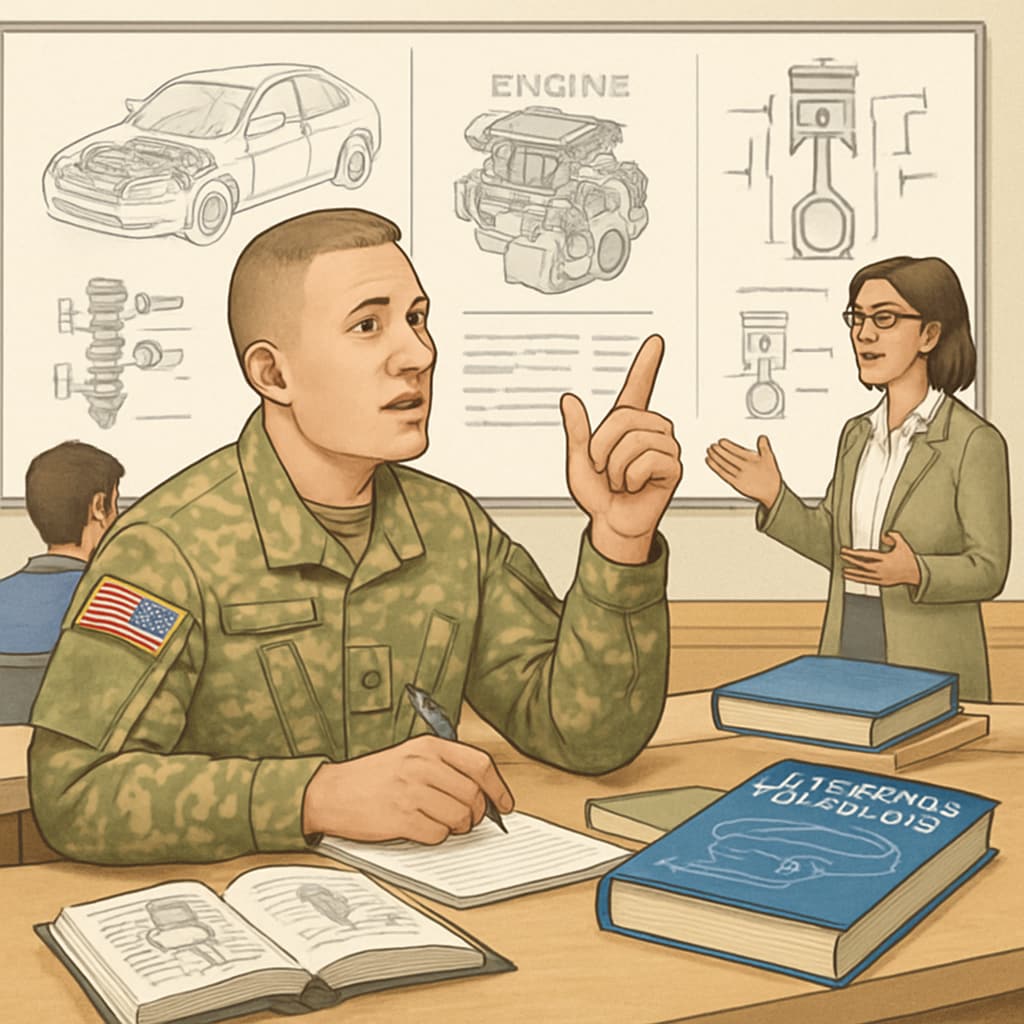For military personnel holding an associate degree in automotive technology, pursuing a bachelor’s degree can open doors to higher-paying positions and broader career opportunities. Whether transitioning from active duty or preparing for civilian life, understanding credit transfer processes, compatible degree options, and future career pathways is crucial. This guide explores how to leverage existing qualifications and military experience to achieve academic and professional success.
Why Transition from an Associate Degree to a Bachelor’s?
While an associate degree in automotive technology provides foundational knowledge and skills, a bachelor’s degree offers advanced expertise and managerial competencies. Many bachelor’s programs include coursework in areas like business management, engineering principles, or specialized automotive systems, preparing graduates for leadership roles in the automotive industry or related fields. For military members, this transition also aligns with the skill development needed for post-service careers.

Key Strategies for Credit Transfer
One of the most significant advantages of pursuing a bachelor’s degree after earning an associate degree is the possibility of transferring credits. Credit transfer can significantly reduce the time and cost required to complete a bachelor’s program. Here are some strategies to maximize credit transfer:
- Choose Accredited Schools: Opt for universities that accept credits from accredited community colleges or military training programs.
- Leverage Military Education Benefits: Programs like the GI Bill often cover tuition costs and may offer additional support for military-friendly institutions.
- Request an Academic Evaluation: Work with admissions counselors to assess how your military experience and associate-level coursework can be applied toward degree requirements.
For more information on credit transfer policies, refer to resources like the GI Bill on Wikipedia.
Choosing the Right Bachelor’s Degree Program
Selecting a bachelor’s degree program that aligns with your associate-level coursework and career aspirations is essential. Here are some popular options for those with an associate degree in automotive technology:
- Automotive Engineering: Focuses on vehicle design and advanced systems, ideal for technical roles in manufacturing or R&D.
- Business Administration: Offers managerial and operational skills, preparing graduates for leadership roles in automotive companies.
- Mechanical Engineering: Expands technical expertise with a broader focus on machinery and systems beyond automotive applications.
Each program offers unique benefits, so consider your career goals and interests when making a decision. For an in-depth comparison of degree options, explore resources like Engineering on Britannica.

Career Prospects After Earning a Bachelor’s Degree
With a bachelor’s degree, military personnel can access a variety of career paths in the automotive industry and beyond. Potential roles include:
- Automotive Project Manager: Overseeing design, production, and testing phases of automotive projects.
- Quality Assurance Specialist: Ensuring compliance with industry standards and improving product reliability.
- Mechanical Engineer: Developing innovative solutions for vehicle systems and machinery.
- Operations Manager: Managing teams and processes in automotive plants or service centers.
Additionally, the leadership and teamwork skills gained during military service can be a significant asset in these roles.
Final Thoughts
Transitioning from an associate degree in automotive technology to a bachelor’s degree is an excellent way to expand your expertise and enhance career prospects. By carefully selecting degree programs, leveraging credit transfer opportunities, and aligning education with professional goals, military personnel can successfully navigate this educational journey. Whether aiming for technical mastery or leadership roles, the path from associate to bachelor’s offers rewarding possibilities.


